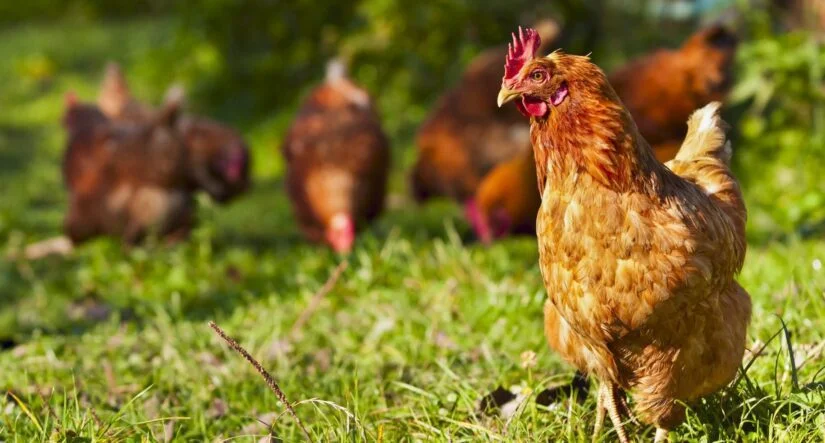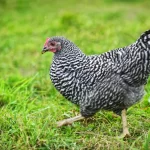As I care for my small backyard flock of chickens, nutrition is always at the forefront of my mind. I want to make sure my girls are getting everything they need in their diet to stay healthy and happy. One question I found myself asking early on was: can chickens eat cabbage?
Cabbage is a common enough vegetable that I figured the chickens would encounter it in the yard or when I give them vegetable scraps. But I wasn’t sure if it would be safe or healthy for them. That sent me on a research journey to find out everything I could about chickens and cabbage.
What I found is that cabbage isn’t just safe for chickens to eat – it can be a very healthy addition to their diet when fed properly. Over time, I’ve successfully incorporated cabbage into my chicken’s menu. In this article, I’ll share everything I’ve learned so other chicken keepers can potentially do the same.
The Basics of Feeding Cabbage to Chickens
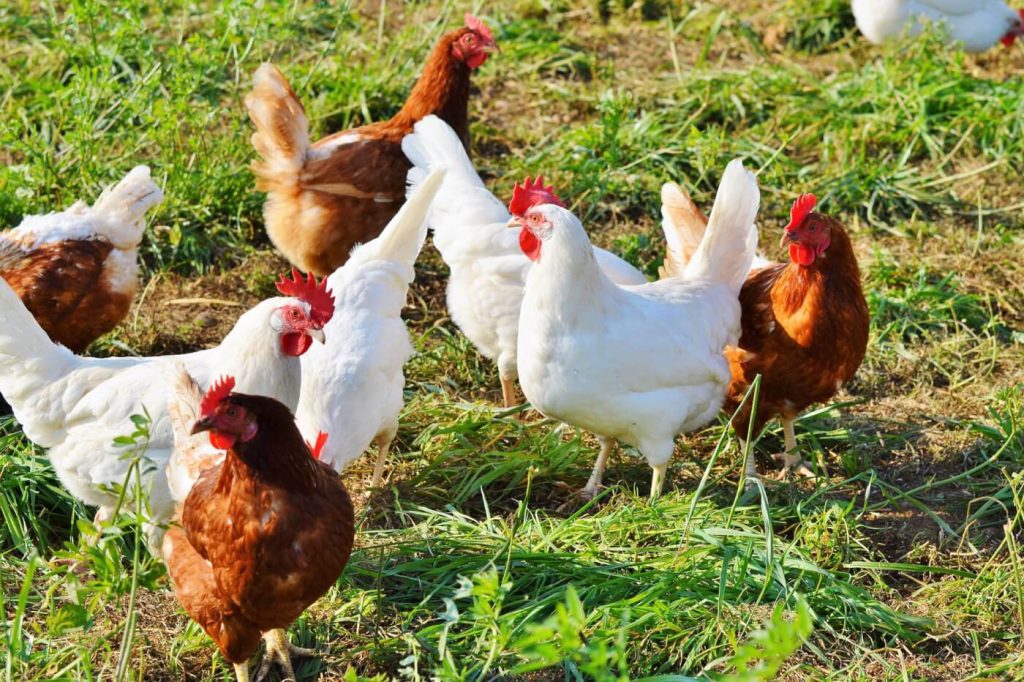
First, let’s start with some cabbage basics. This vegetable is part of the Brassica family, making it related to nutrient-packed plants like broccoli, Brussels sprouts, kale and cauliflower. Cabbage comes in a few different varieties, including green, red, Napa, bok choy and savoy. All of these can be fed to chickens.
In my experience, chickens seem to enjoy all types of cabbage. It took them no time at all to develop a taste for both raw and cooked cabbage scraps from my kitchen. Now it’s a standard supplemental treat in their diet.
One thing to note is that cabbage is 90 percent water. While chickens can benefit from the nutrients in cabbage, it can’t entirely replace high-protein feed and shouldn’t make up the bulk of their diet. Think of it more as a snack than a main course. But an occasional healthy, fiber and vitamin-packed snack nonetheless.
Benefits of Feeding Chickens Cabbage
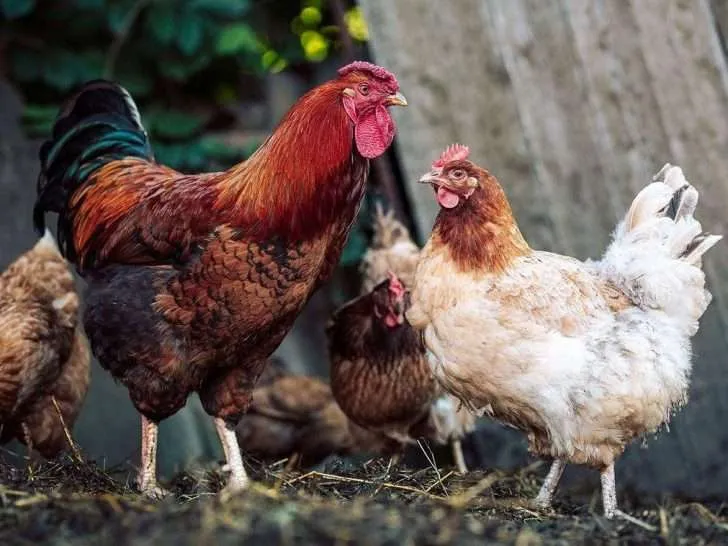
It turns out that giving your flock cabbage has a number of excellent health benefits. Here’s an overview:
Packed With Vitamins
Cabbage is high in vitamins A, C, K and various B vitamins. These support chicken’s immune systems, egg production, vision, skin, feathers and more. The different types of cabbage contain slightly different combinations of vitamins and minerals. Making cabbage a regular part of my flock’s diet helps cover all the bases.
High Fiber Content
Fiber plays an important role in chicken digestive health by promoting “good” bacteria in their digestive tracts. The insoluble fiber in cabbage helps chicken’s bodies push food efficiently through the gut. This leads to improved digestion and reduced risk of illness.
Contains Beneficial Antioxidants
Cabbage has high levels of beneficial antioxidants like sulforaphane and polyphenols. These compounds help neutralize free radicals to reduce chicken’s risk of developing cancer and other diseases later in life. Pretty impressive for a humble vegetable!
Rich in Omega-3 Fatty Acids
Omega-3s are “brain food” for chickens that support their cognition and reduce inflammation. Cabbage happens to be high in a specific form of omega-3s called alpha-linolenic acid (ALA). Feeding cabbage may make your flock a bit smarter and livelier.
Natural Anti-Parasitic Effects
One fascinating benefit of cabbage is that the sulfur compounds it contains may reduce chicken’s likelihood of getting parasites and worms. This makes cabbage an inexpensive natural dewormer – an added perk!
Nutritional Content of Cabbage for Chickens
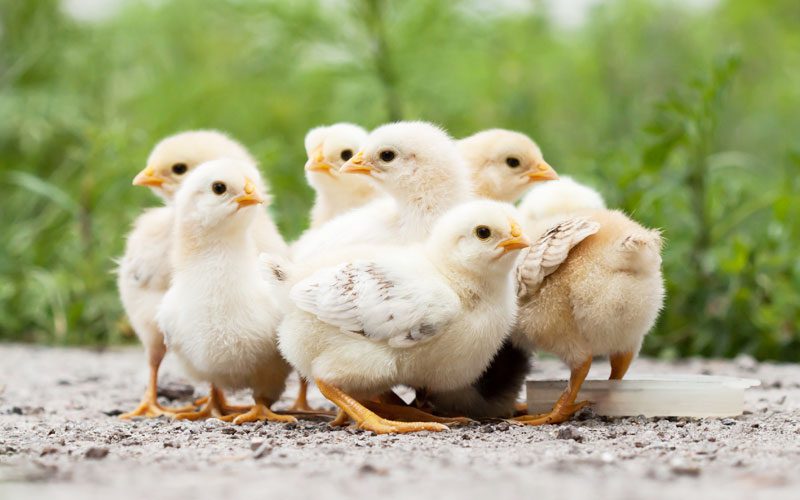
Now that I’ve covered the many benefits of cabbage for chickens let’s talk specifics. Here is the nutritional breakdown for a 100g serving of raw green cabbage:
- 25 calories
- 6g carbohydrates
- 3g protein
- 0.1g fat
- 2.5g fiber
- 81mg Vitamin C (108% RDA)
- 12mg calcium
- 0.5mg iron
- 32mg magnesium
- 209mg potassium
- 38mcg folate
Keep in mind that different cabbage varieties have slightly different nutritional profiles. But most are packed with vitamins, minerals, antioxidants and fiber that benefit chickens.
The ideal amount of cabbage to feed your flock will vary based on how many chickens you have and what else they are being fed. As a rule of thumb, vegetables should comprise no more than 10 to 15 percent of adult chicken’s overall diet.
Possible Concerns with Feeding Chickens Cabbage
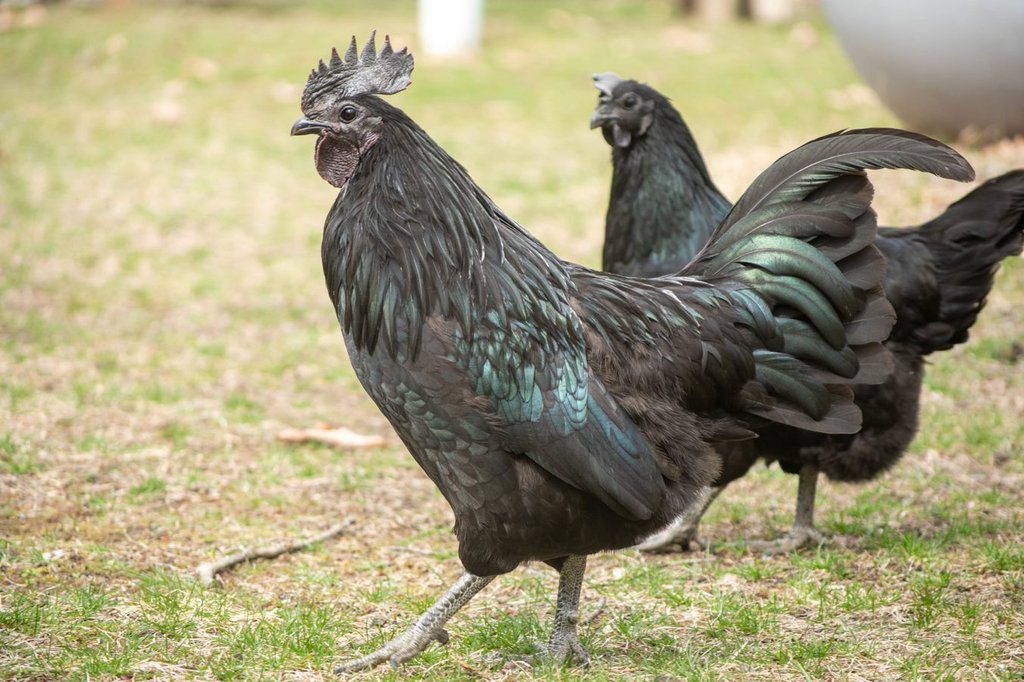
On the whole, cabbage is a healthy, nutritious food for backyard chickens. However, there are a couple precautions keepers should take when feeding it:
- Can cause loose droppings Too much cabbage may cause temporary digestive upset and loose droppings. Introduce it slowly and pulverize it well to give their stomachs time to adjust. Allow free access to insoluble grit like oyster shell to help them break down and digest cabbage effectively.
- Contains thiaminase enzyme
Raw cabbage contains an enzyme called thiaminase that can destroy chicken’s Thiamine (Vitamin B1) stores if they eat too much at once. The fermentation process counteracts effects of the thiaminase enzyme. Therefore, fermented cabbage is safer. - High in goitrogens when overfed
Goitrogens are compounds that may impact thyroid function by blocking iodine absorption when consumed in extremely high amounts. This is nearly impossible with cabbage fed occasionally in moderation. But variety is still important in chicken’s diets.
The Best Ways to Feed Cabbage Safely
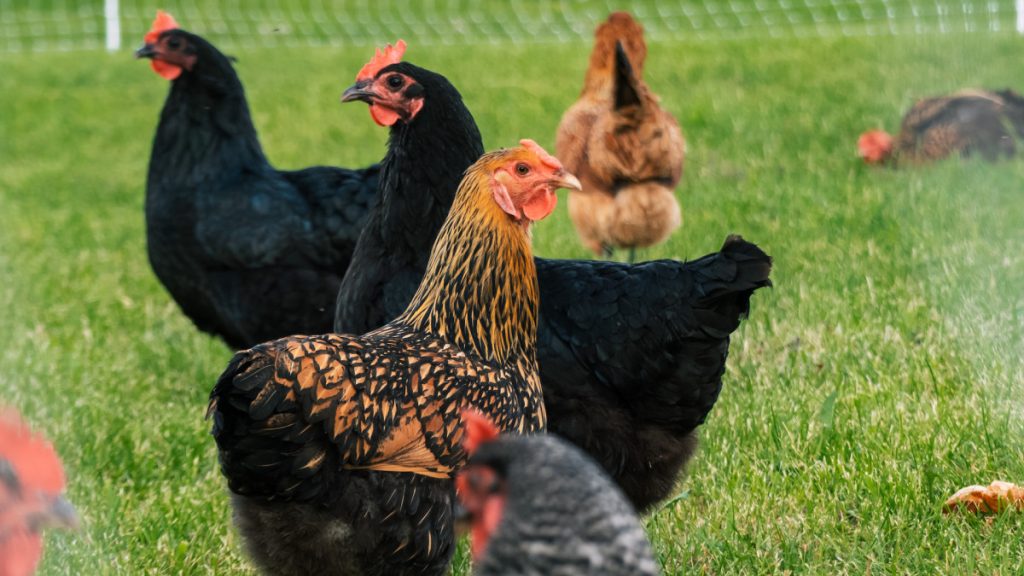
I’ve found that regularly providing cabbage to my flock is completely safe when following a few commonsense precautions:
- Chop finely: Always chop or shred cabbage into bite-size pieces before feeding it to your chickens. Eating whole leaves may overwhelm their digestive systems.
- Feed fermented cabbage: The fermentation process neutralizes the thiaminase enzyme in cabbage. While fresh cabbage is ok in moderation, sauerkraut is an even healthier option.
- Combine with high-protein: feed Make cabbage a supplemental snack or side dish rather than the main course. Combining it with their normal high-protein feed is important.
- Prevent boredom: Rotate cabbage with other vegetable scraps so your flock enjoys a diverse diet. Variety prevents boredom and ensures balanced nutrition.
Following these simple rules allows your chickens to gain great health benefits from cabbage without risk. Trust me, once they get their first taste, this human favorite becomes a chicken favorite too!
How I Feed Cabbage to My Backyard Flock
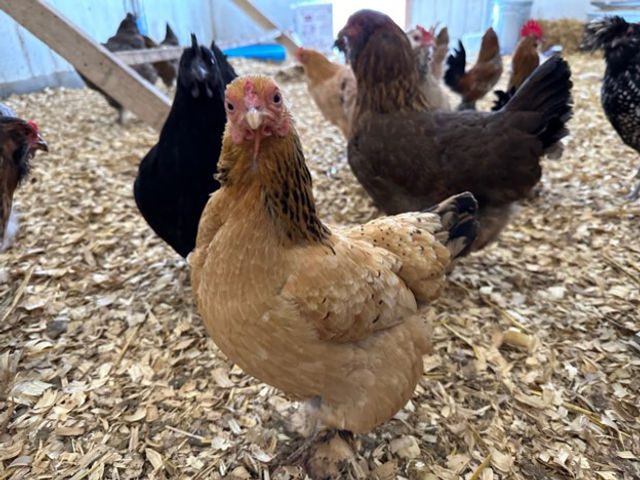
Over time, I’ve developed a system for working cabbage into my chicken’s feeding schedule. Here’s a look at how cabbage fits into the bigger picture:
I give my chickens an organic 16% protein feed as their staple diet. This quality feed ensures they get adequate protein, carbs, vitamins and minerals. I keep it well-stocked in their coop feeders at all times.
Once daily, after they’ve had ample time to finish their crumble, I also distribute healthy supplemental foods like vegetables, fruits, yogurt, sprouted grains and treats. Feeding them free choice allows the chickens to self-regulate based on their nutritional needs.
A few times a week, a portion of this supplement mix includes cabbage in some form – either roughly chopped raw cabbage or sauerkraut with finely diced veggies. I sprinkle it in their outdoor run and let them forage. Supporting their natural foraging instinct keeps the chickens active and engaged.
Occasionally, I’ll hang whole cabbage heads or lettuce by string in their run for added enrichment. The chickens seem to enjoy pecking at swinging vegetables and foraging for the bits that fall off. It’sChickenTV!
I continue this regimen year-round, but increase high-protein feed and treats during molting seasons when the chicken’s nutritional needs are higher. Using cabbage and other vegetables as supplemental feed has worked wonderfully and my chickens are thriving.
The chickens go crazy whenever they see me coming thanks to this varied feeding approach. And I’ve noticed a definite increase in egg production thanks to the nutrition boost!
As you can see, chicken keepers tend to share a lot of the same concerns about feeding their flocks cabbage and other vegetables. I’m happy to share my experiences to help reassure others that cabbage can be an excellent addition.
Cabbage as an Occasional Chicken Treat
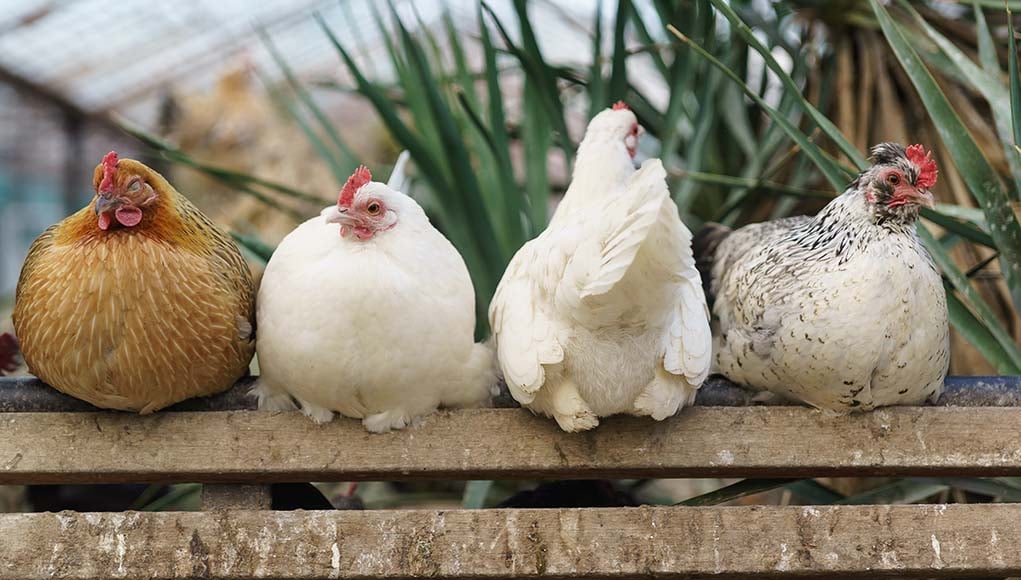
After several years of near daily cabbage feeding, I confidently consider this humble vegetable a staple supplemental treat in my chicken’s diet.
While cabbage can’t entirely replace balanced feed, offering small amounts satisfies my flock’s natural foraging instincts while delivering beneficial nutrients. Over time, I’ve seen improved intestinal health, egg production and activity levels thanks to cabbage and other vegetable scraps.
My advice for fellow chicken keepers is to start slowly when introducing cabbage. Monitor your chicken’s droppings for digestive upset. But in most cases, you can expect a vigorous, healthy response as chickens relish this tasty human food. Cabbage is affordable, packed with nutrition and adds diversity. It’s a win all around!
If questions remain about the safety of cabbage or correct amounts, connect with your local agricultural extension for guidance tailored to your specific flock and environment. But otherwise, don’t hesitate to discover just how much chickens enjoy our leftover “chicken coleslaw” once you get cooking!
FAQs
Yes, it’s best to feed cabbage in moderation – no more than a handful per standard-sized chicken per day. Too much can cause digestive issues and loose droppings due to it’s high water content.
No, cabbage should be fed intermittently as a snack alongside their high-protein feed. Allow the chickens to finish most of their crumble before offering cabbage to prevent overconsumption.
Yes! Red cabbage is perfectly chicken-safe. Many chicken keepers report their flocks love the flavor. The red color comes from healthy antioxidants, making red cabbage a smart occasional treat.
Cabbage should be introduced slowly to baby chicks under 16 weeks old. Try small amounts of finely chopped fresh cabbage or sauerkraut mixed into their feed. Their digestive systems are still developing, so watch for signs of issues.
Raw cabbage contains higher levels of vitamin C and certain antioxidants. Light cooking through steaming helps release other nutrients. Both raw and lightly cooked cabbage offer health benefits, so mix it up!
It’s fine to give backyard chickens cabbage every day, provided it’s just a snack and not their main meal. Mix in other veggies too for variety’s sake. And allow access to insoluble grit to aid digestion.
Nope! Adding vegetables like cabbage to chicken’s diets typically only positively impacts nutrition levels. The flavors of eggs are not noticeably altered. So feel free to hard boil some cabbage-fed eggs for egg salad without worry.
Conclusion
Cabbage can be a nutritious and beneficial supplement to a backyard chicken flock’s diet when fed properly. All types of cabbage, including green, red, Napa, bok choy and savoy offer important vitamins, minerals, antioxidants, omega-3s and fiber. These nutrients boost chickens’ immunity, digestion, brain health and productivity.
When feeding cabbage to your grown-up chickens, remember to only give them a little bit. Too much cabbage can upset their tummies. Always cut the cabbage into small, bite-sized pieces before giving it to them. To be extra safe and make sure they get the most nutrients, it’s best to choose fermented cabbage like sauerkraut or mix the cabbage with their high-protein food. Cabbage should be given as a treat every now and then, not all the time. Make sure they still eat their regular balanced crumble or pellets most of the time.


